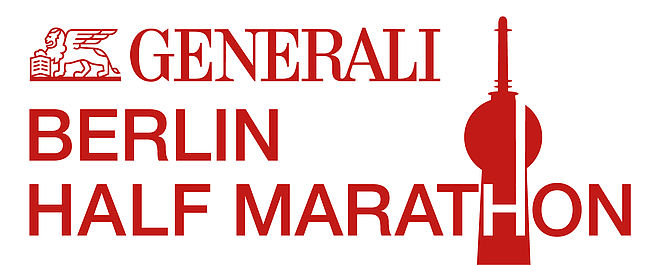In each of the segments of our two 11-part series on the XXVIII Olympic Games
in Athens we dealt with the favourites for the running races starting at 800 m
for both the men and the women, as well as looked at the 104 years of Olympic
history since 1896 in Athens, with a special look at the participation and
successes of the German athletes.
How the favourites can turn into a heap of despair –
was demonstrated by the women’s marathon with Paula Radcliffe. The
Olympics are simply different—once again, the now 108 years of legends
and stories about the men’s marathon gained a new dramatic
story—this time about Vanderlei da Lima from Brazil, who led the marathon
until 37 km, but suffered a dramatic finish.
Deranged 57-year-old Cornelius Horan
The deranged 57-year-old Cornelius Horan, a former Catholic priest from Ireland
and repeat offender, pushed the leading runner off the course to the side of
the road. Horan received one year of prison on probation and a 3000 Euro fine.
But that does not get Lima the gold medal which he might have won, who
proceeded after the attack to win bronze.
If we continue to list the successes and rankings of the German athletes
since 1896 in our historic Olympic series, the Games in ATHENS will not supply
much positive news to be included. The results were more than disappointing for
the German runners, even if one had already been relatively pessimistic going
into the Games.
Here are all of the events of the men and women German participants
starting at 800 m:
Women:
800 m: Claudia Gesell – 4th in the first heat in 2:03.87,
eliminated
1500m: No German participants
5000 m: Finals: 7th Irena Mikitenko - 15:03.36
10.000 m: Finals: 15th Sabrina Mockenhaupt - 32:00.85
Marathon: 18th Luminita Zaituc 2:36:45
Ulrike Maisch dropped out
Men:
800 m: René Herms – 8th in the semi-finals 1:47,68
1500 m: Wolfram Müller – eliminated in the first heat in
3:46:75
5000 m: No German participants
10.000 m: No German participants
Marathon: No German participants
3000 m Steeplechase: No German participants
79 German track and field athletes were nominated, 71 competed (of a total
of 452 German athletes in Athens). There were 2 silver medals, in shot put by
Nadine Kleinert and in javelin by Steffi Nerius – and that was it.
That was the worst performance since Stockholm in 1912 (where Germany also won
2 silver medals by Hans Liesche in the high jump and Hanns Braun in the 400 m).
The Swedish track and field came with 12 athletes and left with three gold
medals.
Germany thus lies together with South Africa in 24th place behind
Romania.
This is somewhat relative when you look at the famous motherland of the sport,
Great Britain, who only won 4 medals (of which 3 were gold, however), and
France who went home empty handed.
But even when the German “pea counters“ traditionally include up to
10th place, the German results this year do not look much better.
And after watching the German athletes completely embarrassed themselves
verbally with their answers to the idiotic interview questions of the reporters
one minute after their finishes, one has to ask oneself why they were permitted
to go to ATHENS at all.
The runners of the DLV (German Athletics Association)
”shined” with one 7th place finish by Irena Mikitenko in the 5000
m.
For those who still have the success stories from the “Olympic Historic
Series” of the German runners over the past 104 years in their heads, it
is enough to make them cry — or they see ATHENS as a negative exception
to the motto: “the others should have a chance to win too.”
But this attitude could prove devastating if one is interested in the further
development of elite athletes in track and field in Germany.
“It could always be worse“ was the caption of
the Frankfurter Rundschau newspaper over the total results of the German track
and field. DLV vice-president Rüdiger Nickel already stepped down, which
is certainly the noble thing to do, but that does not make the athletes better
and faster, and it does not excuse the poor performances and in part odd
attitudes by some of the athletes about the climax of their athletic
careers.
“Just being there“ is no longer everything. That was
earlier. Now the motto is “Being at the top“.
The Americans also had not won any medals in the marathon for decades, since
1984 in Atlanta (Benoit) – even though the USA is a stronghold of joggers
and large running events. And now they suddenly have two shining running idols
in the marathon.
 Deena
Deena
Kastor (photo r.) won the bronze medal for the women. And as chance would have
it, I ran into Dave Martin, whose book “The Olympic Marathon“ was
often cited in the Olympic Historical Series, on Saturday before the
men’s marathon in the Olympic stadium.
He said to me: “Only one kilometre more and Kastor would have won, and
tomorrow there will be an American on the podium as well.“ When I asked
unbelievingly “Who will that be?“, he explained how the US marathon
runners had trained especially for the heat in ATHENS and had learned how to
drink appropriately.
Dr. Dave Martin was right. Up to the half marathon point there was no
American to be seen on the large screen in the historic Olympic stadium, but
shortly thereafter an American with the unpronounceable name Mebrahtom
Keflezighi suddenly moved up.
Up until 30 km the world record holder from the real,- BERLIN-MARATHON, Paul
Tergat, was also still in the race, 4th in the leading group.
Insiders later found out that Tergat, the favourite, missed his own drink at
25 km and drank something else instead, got stomach cramps and fell back. He
ran the last 5 km in 16.02 – the 5 km from 30 to 35 km in 14.47, and the
last 2.195 km in 8.06 minutes.
Paul Tergat’s only comments on the race were: “Hard, very
hard!”
Of 101 marathon runners, 81 finished, many with tears in their eyes, out of
reverence for the Panathinaikon Stadium from 1896 and full of emotion from the
race on the historical course. The winning time by Stefano Baldini (ITA) in
2:10:55 on the difficult, hilly, sunny and endlessly straight course is an
amazing performance. Lima celebrated his bronze medal like a
gold, and the spectators in the stadium applauded him even louder than
the champion.
Lima also received the Pierre-de-Coubertin Fairplay Medal for his
sportsmanlike conduct. The predicted podium spot for the US American
Kegflezighi in 2:11:29 brings the running world in the United Stated back onto
a straight course of further development in long distance running, something
one would have wished for Germany as well.
But if no one competes for Germany, there will not be any role models in the
future either!
The high and symbolic status of the marathon in this world of
sports
The awards ceremony for the marathon during the great closing ceremony in the
Olympic stadium by the IOC president Jacques Rogge and the IAAF president
Lamine Diack demonstrates the high and symbolic status of the marathon in this
world of sports.
Allan Steinfeld of the New York Marathon had the right idea putting Deena
Kastor on the cover of his running magazine as a new role model for the
marathon, even before she became the bronze medal winner in ATHENS.
Not only the New York Marathon was represented in ATHENS, but the marathons
in Chicago, London and Berlin as well, where they could directly experience the
disappointments, as well as the thrilling achievements of the
runners.
Thank you to all of the unnamed volunteers
“Unforgettable, dreamlike Games“ were the words of the IOC
president Rogge at the closing ceremony, which brought the Games to an end in
ATHENS at the foot of the Acropolis. He meant not only the athletic
achievements of the participants, which your average spectator now doubts more
and more, but he also certainly spoke with these words a modest verbal thank
you to all of the unnamed volunteers who helped make it possible. The
volunteers of the Games made up the heart of the gigantic sport machinery, and
it was they who brought light to the human face of sport in the ancient site
through their hospitality and friendliness to all of the international
visitors.
Peking 2008
The sights are now set on Peking 2008, and like already quietly proclaimed
through the 110m hurdles victory by Liu Xiang (CHN) and Xing Huina (CHN) in the
women’s 10000m, it will not only be more difficult for the German
athletes to find space at the front, but the traditional running nations will
also be astounded at how not only Africa, but also Asia will share the medals
among themselves in the future.
In the future, the German track athletes, as well as the media and sport
publicity, will have to get used to being pleased with good rankings and stop
hoping to count the medals.
Horst Milde
The series on the Olympic favourites can be found in our Olympic archives
from July-August. Whether or not our tip was correct you can see in the
chronologically following article in the archives.
If you would like to get cheered up with the successes and rankings of the
German athletes in the past, you can read about the 104 years of Olympic
History here.
Womens 800m (Historic Olympic Series I):
www.berlin-marathon.com/news/show/002090
Mens 1500m (Historic Olympic Series II:)
www.real-berlin-marathon.com/news/show/002114
Mens 800m (Historic Olympic Series III):
www.real-berlin-marathon.com/news/show/002129
Womens 1500m (Historic Olympic Series IV):
www.real-berlin-marathon.com/news/show/002166
Womens 5000m (Historic Olympic Series V):
www.real-berlin-marathon.com/news/show/002184
Mens 5000m (Historic Olympic Series VI):
www.real-berlin-marathon.com/world/E/news/show/002202
Womens 10.000m (Historic Olympic Series VII):
www.real-berlin-marathon.com/world/E/news/show/002222
Mens 10.000m (Historic Olympic Series VIII):
www.real-berlin-marathon.com/world/E/news/show/002241
Mens 3000m steeplechase (Historic Olympic Series IX):
www.real-berlin-marathon.com/world/E/news/show/002273
Womens marathon (Historic Olympic Series X):
www.real-berlin-marathon.com/world/E/news/show/002290
Mens Marathon (Historic Olympic Series XI):
www.real-berlin-marathon.com/world/E/news/show/002349


